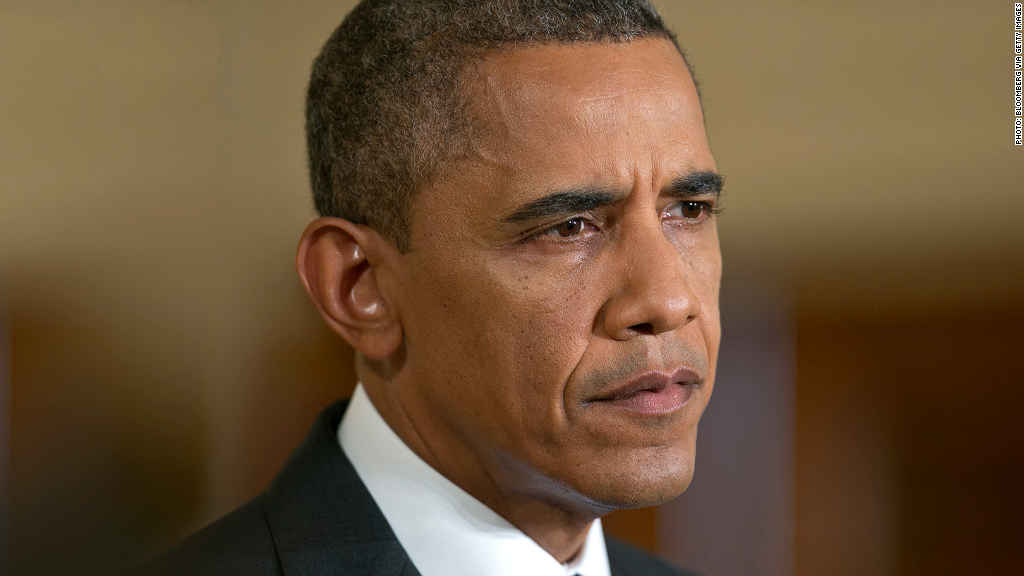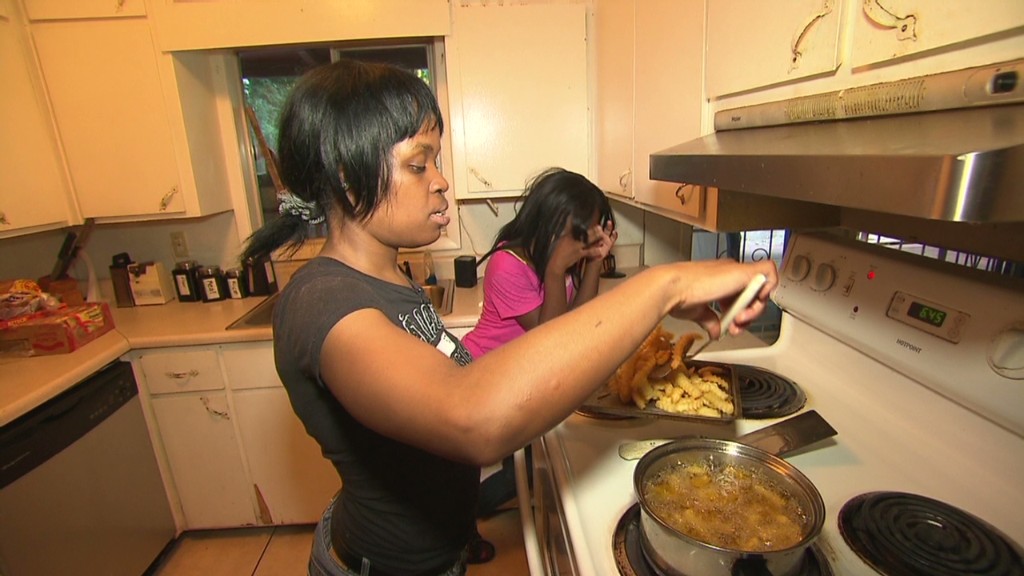
President Obama has been loud and clear about his fight against income inequality, but he admitted that the rich have fared far better than the poor during his time in the White House.
In an interview that aired Sunday on ABC's "This Week with George Stephanopoulos," the show host cited a recent study from the University of California, Berkeley, that found 95% of income gains from 2009 to 2012 went to the top 1% of the earning population.
The president agreed with Stephanopoulos.
"The folks in the middle and at the bottom haven't seen wage or income growth, not just over the last three, four years, but over the last 15 years," the president said.
In fact, other data also show that America's median household income has dropped by more than $4,000 since 2000, after adjusting for inflation.
Related: Why America's middle class is losing ground
During the interview, Obama said his priority as president has been to stabilize the economy and create jobs. He said the country has made progress with 42 straight months of economic growth and 7.5 million new jobs in the private sector.
His other focus he said has been to chip away at the growing trend of income inequality.
The president cited his efforts to tax the rich more, make health care more affordable, and usher in financial reforms to avoid future bailouts funded by taxpayers.
However, Stephanopoulos pressed the president, highlighting again that the economic recovery since the financial crisis has overwhelmingly favored the richest Americans.
"Do you look at that, four and a half years in, and say, 'Maybe a president just can't stop this accelerating inequality?'" he asked.
Related: California poised to raise minimum wage to $10
Obama admitted that some of it stemmed from events that are beyond Washington's control. He pointed out that globalization and technology has robotized "entire occupations" like bank tellers and travel agents.
As president, he said his administration has pursued policies to push back against these trends, such as prepare kids for higher skilled jobs, and invest in research, new ports and a smarter electricity grid. However, he voiced his frustration at the lack of support for his agenda from Republicans.
"There's no serious economist out there that would suggest that, if you took the Republican agenda of slashing education further, slashing Medicare further, slashing research and development further, slashing investments in infrastructure further, that that would reverse some of these trends of inequality," Obama said.

While income inequality has been on the president's agenda since his first campaign in 2008, the issue has been in the spotlight this year as the debate over raising the minimum wage has intensified.
During his State of the Union address in February, Obama unveiled a plan to boost the federal minimum wage to $9 an hour in 2015, up from the current $7.25, and index it to inflation.
"This single step would raise the incomes of millions of working families," the president said during his speech that night. "For businesses across the country, it would mean customers with more money in their pockets."
And in July, Obama pledged that he will spend the remainder of his presidency trying to reverse growing income inequality.
"This growing inequality isn't just morally wrong; it's bad economics," he said. "Because when middle-class families have less to spend, guess what, businesses have fewer consumers. When wealth concentrates at the very top, it can inflate unstable bubbles that threaten the economy. "


